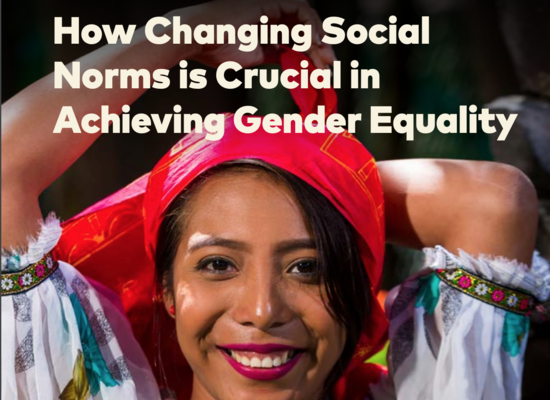UNFPA How Changing Social Norms is Crucial in Achieving Gender Equality
A new publication by the UNFPA offers a framework for changing discriminatory norms. Suggestions include creating a relationship of trust between communities and influencers and decision-makers and amplifying marginalised voices.
"Human behaviour is not always a choice. Often it is automatic and unintentional, and rooted in the belief that others expect us to behave in a certain way, particularly when upholding traditions and culture."

How Changing Social Norms is Crucial in Achieving Gender Equality demonstrates best practices which have successfully helped to end harmful norms in different regions of the world. It also highlights common steps that can be applied to changing all kinds of discriminatory norms to achieve gender equality.
The key, experts say, is empowering community members to deliberate about how their practices do or do not uphold their own deeply held values. Community members should be encouraged to listen to new ideas and reflect on their values. Recent social change has been accelerated by the exchange of ideas, perspectives and beliefs over digital platforms and social media. This has also helped to amplify marginalised voices around the world. Advocates and community groups can help steer these conversations towards productive changes that affirm human rights.
This approach: the involvement of communities and giving a platform to marginalised voices, is at the core of the activities of End FGM EU and we welcome this publication with the hope that it will influence Gender Equality initiatives towards these best practices.
